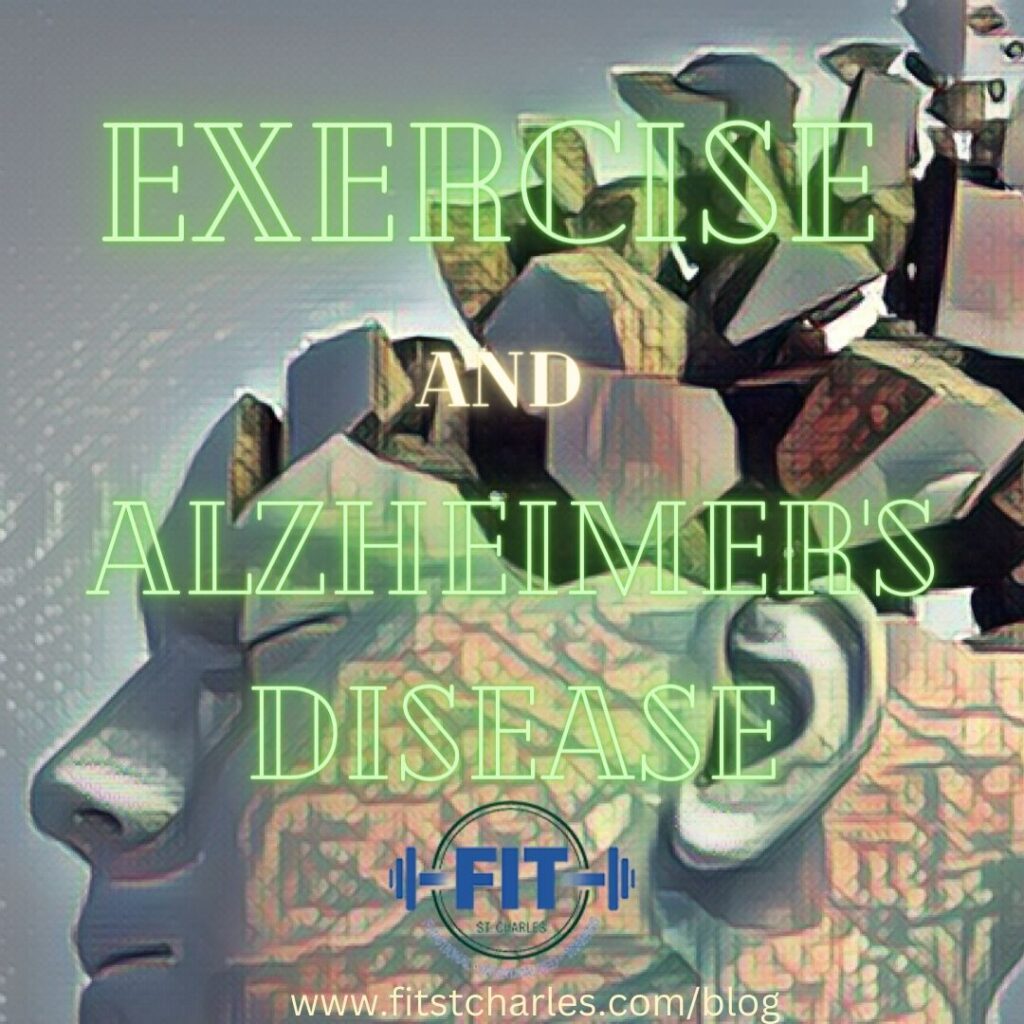
Alzheimer’s disease (AD) is a progressive neurodegenerative disorder characterized by memory loss as well as multiple cognitive disorders. It usually affects those over the age of 65, but can begin earlier in life. We don’t 100% understand what causes it, but age is the most significant risk factor, although family history, less alcohol consumption, and not smoking seem to play a role as well. Symptoms of mild (early) Alzheimer’s includes: memory loss that leads to disruptions in daily life, poor judgment, loss of sense of initiative, losing track of dates and current location, problems solving problems, losing or misplacing items, difficulty remembering to complete daily tasks (such as brushing teeth or bathing) and/or taking longer to complete them, mood and personality changes, and increased anxiety and aggression. The stage is usually when Alzheimer’s is diagnosed. Individuals will become confused, frustrated, leading to depressive symptoms as well. It affects people to varying degrees, and is progressive, meaning it gets worse over time. How fast it progresses depends on genetics, course of treatment, and how early treatment begins.
The moderate stages of Alzheimer’s is generally what is depicted in movies, TV, or other media. Symptoms include: increased memory loss (forgetting personal history, for example), inability to learn new things, difficulty with language, reading, writing, and math, as well as difficulty with logic, occasionally not recognizing family and friends, hallucinations, delusions, or paranoia. Symptoms also include inappropriate emotional outburst, inappropriate impulsive behavior, shortening attention span, changes in sleep, problems coping with new situations, as well as repetitive statements or movement. Individuals also begin experiencing restlessness, agitation, anxiety, and wandering around (usually in the late afternoon or evening), which can be dangerous. In late (severe) stages of AD, patients lose the ability to communicate and have no awareness of recent experiences or their surroundings. Physical effects of severe AD include seizures, difficulty swallowing, loss of bowel and bladder control, and sleeping more. This leads to weight loss and physical decline (including teeth, skin, and feet).
Due to the nature of the disease, it is hard to care for someone in mid to late stages of AD. The individual might wander off, forgetting where they live, and get lost. They may misplace important items around the house, and worst of all, they may forget their friends and family members, often mistaking them for someone else, or have no memory of them at all. It is painful to watch a loved one go through this, and hard to digest the fact that they may or may not remember who you are. Due to the potential severity of this disease, many people with AD end up needing full time caretakers or end up in a facility that is equipped to help them in their day-to-day lives.
AD is confusing, frustrating, and heart breaking, and early treatment is important. Because of this, it is important to recognize the signs early and begin intervention as soon as possible. If you begin recognizing early signs of AD in yourself or others, it is important that you speak to your doctor as soon as possible. They will likely prescribe medications to help prevent further symptoms and alleviate current ones. Exercise is not a replacement for care under the supervision of a physician, but it is a surprisingly effective addition to treatment and prevention- regular exercise has been shown to improve memory, reduce anxiety and aggression, and delay the onset of AD.
Does exercise help prevent Alzheimer’s? In short, yes, it can. Regular exercise increases blood flow to the brain, aiding in the prevention of cognitive decline (as we age, blood flow to the brain naturally decreases). Studies show that patients that had already began a long-term exercise routine prior to their diagnosis had increased hippocampal volume (the part of your brain responsible for short term memory, as well has helping “move” memories to your cortex, where your long term memory is stored, as well as aiding in improved cognition) and improved neurogenesis (the process of new neurons being formed in the brain). In addition, studies have found that physical inactivity is one of the most common preventable risk factors for developing AD. Those who were already active had reduced risk of developing the disease (according to one study, up to 45% reduced risk)! This is yet another reason you shouldn’t wait to start a workout routine!
Does exercise still help after the onset of Alzheimer’s? Studies indicate yes, at least in some ways. Similar to how it can help treat ADHD and Clinical Depression (and we wrote about that too, so go check that out!), regular exercise releases endorphins that help with mood. This can aid in reducing feelings of anxiety, depression, agitation, and stress. Some studies suggest that it can also help with memory, although others suggest that there was no improvement once symptoms had already begun. One study found a correlation to improved cognitive function directly after aerobic training, however, the effects didn’t last long. Less is known about how exercise affects memory or other cognitive impairment, mostly due to a lack of long term large-scale studies in those already diagnosed with Alzheimer’s disease.
There is no downside to beginning a workout routine, regardless of whether you are at risk for Alzheimer’s, but the benefits of starting regular exercise as soon as you can are clear. Even without sufficient evidence to prove whether or not exercise helps with cognitive function once AD begins, it is pretty evident that it is beneficial in delaying the onset. Plus you will benefit from all of the other great things that come with regular exercise- increase your confidence, improve your mood and memory, and take some control over your body to lead a healthy, happy, longer life!
